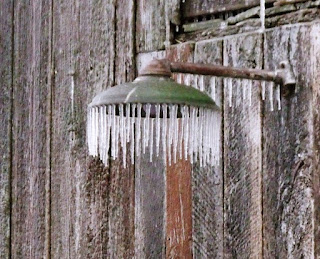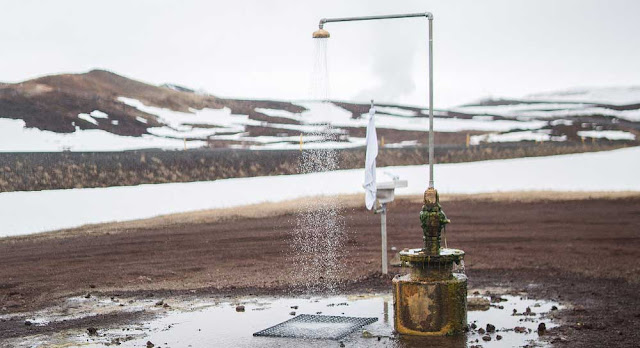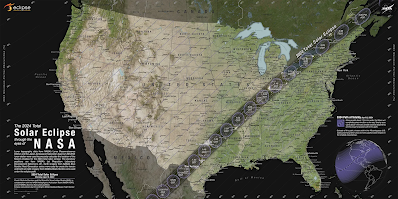What I Read in 2018
Seeing as I wrote a "What I Read in 2017" post one year ago, it now must be a tradition to give an annual list. Though I told myself last year that I would write down what books I read so that I wouldn't forget, this inner voice of reason was disregarded. Hence, the list is probably absent of some literary selections. Years ago I came to the conclusion that a book takes a long time to read, so what I do read had better be good. Having kids suck up most of my time has only strengthened this belief. I expect the books I read to be of a high standard. Occasionally they are not, but not too often. So sorry, you will not see any Chicken Soup for the Soul, or New York Times best sellers here. Alas, lest I suck up any more of your time, let us begin...
Number the Stars - Lois Lowery
Yes, this was a grade five novel study book. The story is most excellent. It takes place in Denmark during World War II, and illustrates the plight of the Jews, and the brave resistance work done to combat the Nazis. The title of the book is a wonderful play on words. The stars (Jews) were numbered in concentration camps. In the psalms God numbers those who are close to Him. It suggests that God watches over His faithful, even in the midst of the greatest sufferings. The book is a tremendous story, but unfortunately is written at about a grade five level, and so does not offer the most profound use of the English language. I believe grade five students could stand to be introduced to fancy words and expressions.
Brideshead Revisited - Evelyn Waugh
Revisited indeed. This was the second time I read Waugh's classic. It is my favourite novel for a reason. Everything about it is of the highest quality, be it the characterization, actual story, or the gentle workings of grace in the midst of a disastrously selfish humanity. Hmmm, this book must be prophetic. Read this book. Just read it.
Ten Ways to Destroy the Imagination of Your Child - Anthony Esolen
I often say that Esolen could write a cookbook and I would read it with great delight. He is, in my opinion, the best pure writer in the world today. His command of the English language reminds me of those great English novelists of the nineteenth and twentieth centuries. As for the actual book, Esolen takes a Screwtape approach to explaining the failings of culture. Be warned, these are difficult times to raise a child. Yet Esolen offers much hope as well. Get your children off of the Ipads and kick them outdoors. Then, when they come inside, read great books to them and let them play. All the while letting God work his grace. I recommend anything written by Esolen (probably even a cookbook).
Noble Beauty, Transcendent Holiness - Peter Kwasnieski
Why do so many people, especially young people, love the Latin Mass? What makes it so special? Kwasnieski intrigues as he explains why. For those who are opposed to the Latin Mass, or just don't get it, I challenge you to read this book. Whatever your objections are, Kwasnieski will take them, argue your point with the greatest skill, and then proceed to destroy these arguments. This book impacted me greatly this year (in a good way).
One Beautiful Dream - Jennifer Fulwiler
My dud on the list. Becca borrowed this book to read, so I gave it a quick go-through. Fulwiler takes the readers through the life of a working mom who wants it all, but must learn that there are consequences to this (especially if you are racing past God's plans). It seemed every chapter had a paragraph about her being out in public with a multitude of crazy children, and then she realized she was wearing an old dirty shirt. Haha... Jennifer: just put on a new clean shirt. Her book does have a fun little ending about how she ultimately realizes her family should be brought along on her journey. How shocking. Hopefully that wasn't a spoiler for you.
The Heresy of Formlessness - Martin Mosebach
I learned about this book from reading Kwasnieski's. Indeed, Mosebach has an essay as a foreword to Noble Beauty. In The Heresy of Formlessness we read stunning stories and remarkable theological explanations which comprise the Traditional Latin Mass. I feel as though I am just scratching the surface of what the Usus Antiquor has to offer. Mosebach knocks this book out of the park.
Very Good Jeeves - P.G. Wodehouse
When reading heavy theological works it is important to add some balance and humour. Enter P.G. Wodehouse. As the cover says: "Light as a feather, but fabulous." That sums it up nicely. I am always up for a quick Wodehouse novel. Though I do believe he does offer very insightful social commentary within his light tales.
Come Rack! Come Rope! - Msgr. Robert Hugh Benson
The author of the fabulous The Lord of the World presents a chilling and thrilling story of life as a secret priest during the persecution of Catholics in reformation England. Did martyrs always sing as they went to their death? In this book we get inside the mind of one. It's not all sunshine and rainbows after all. Wow! Did I just say we get inside the mind of a martyr? Buy this book and read it!
Where the Red Fern Grows - Wilson Rawls
I read it every year to my class. It's one of the best books I've ever read. Written by a man who was so poor as a child that he would write stories in the dirt. Rawls weaves in tales of life with his dogs, faith in God, death, and what it takes to become a man. This is a must read for all 10-14 year old boys.
The Cricket in Times Square - George Selden
I do read stories to my kids, so I thought I would add one such selection. Oddly enough, this is the one story I didn't actually read. It was an audio book we listened to on our trip to Jasper. Obviously, then, I will always associate this book with beautiful memories of the best family vacation ever had. Oh, it's a fun and well written story as well. It makes one ponder the important things in life. Hint: Not fame and success.
The Hobbit - J.R.R. Tolkien
That's John Ronald Reuel, of course. The truth was, I had never read The Hobbit until this year. And then I promptly read it to my class once I completed it on my own. It was an eye opener for my students. "He uses fancy words!" Yes he does. Oh, and by the way, don't bother with the movies.
If you haven't noticed yet, my website is named after a passage from the book. Bravest Thing is somewhat of a tribute to the impact that Tolkien, and all great thinkers, have had on me. Tolkien and others captivate and enthral. They inspire and teach. In the end The Hobbit is a testament to what literature can and should be. All for the greater glory of God.
The Picture of Dorian Gray - Oscar Wilde
I wasn't sure how to approach this novel. You hear... stories... about Oscar Wilde. The book is dark. It gets into the heart of fallen humanity. Dorian Gray's situation is reminiscent of Plato's Ring of Gyges, or Tolkien's Hobbit (more on that later). What would you do if you could get away with anything? How would you live? We are not hobbits. Sin wounds humanity deeply. Wilde, whom many claim converted at the end of his life, produced a masterpiece with this novel. It is highly recommended.
Number the Stars - Lois Lowery
Yes, this was a grade five novel study book. The story is most excellent. It takes place in Denmark during World War II, and illustrates the plight of the Jews, and the brave resistance work done to combat the Nazis. The title of the book is a wonderful play on words. The stars (Jews) were numbered in concentration camps. In the psalms God numbers those who are close to Him. It suggests that God watches over His faithful, even in the midst of the greatest sufferings. The book is a tremendous story, but unfortunately is written at about a grade five level, and so does not offer the most profound use of the English language. I believe grade five students could stand to be introduced to fancy words and expressions.
Brideshead Revisited - Evelyn Waugh
Revisited indeed. This was the second time I read Waugh's classic. It is my favourite novel for a reason. Everything about it is of the highest quality, be it the characterization, actual story, or the gentle workings of grace in the midst of a disastrously selfish humanity. Hmmm, this book must be prophetic. Read this book. Just read it.
Ten Ways to Destroy the Imagination of Your Child - Anthony Esolen
I often say that Esolen could write a cookbook and I would read it with great delight. He is, in my opinion, the best pure writer in the world today. His command of the English language reminds me of those great English novelists of the nineteenth and twentieth centuries. As for the actual book, Esolen takes a Screwtape approach to explaining the failings of culture. Be warned, these are difficult times to raise a child. Yet Esolen offers much hope as well. Get your children off of the Ipads and kick them outdoors. Then, when they come inside, read great books to them and let them play. All the while letting God work his grace. I recommend anything written by Esolen (probably even a cookbook).
Noble Beauty, Transcendent Holiness - Peter Kwasnieski
Why do so many people, especially young people, love the Latin Mass? What makes it so special? Kwasnieski intrigues as he explains why. For those who are opposed to the Latin Mass, or just don't get it, I challenge you to read this book. Whatever your objections are, Kwasnieski will take them, argue your point with the greatest skill, and then proceed to destroy these arguments. This book impacted me greatly this year (in a good way).
The Mass of Brother Michel - Michael Kent
Great books beget great books. In reading Kwasnieski I found that he frequently referenced the little known novel The Mass of Brother Michel by Michael Kent. Kent's story takes place in the early days of the reformation. He shows what the Mass meant for those who were persecuted for the Catholic faith. Catholics take note, to be willing to suffer means one must be connected most intimately to Christ's suffering, which in turn means a deep connection to the sacrifice of the Mass. And the Mass must actually portray this sacrifice, and not some table chit chat. It was an outstanding novel.
One Beautiful Dream - Jennifer Fulwiler
My dud on the list. Becca borrowed this book to read, so I gave it a quick go-through. Fulwiler takes the readers through the life of a working mom who wants it all, but must learn that there are consequences to this (especially if you are racing past God's plans). It seemed every chapter had a paragraph about her being out in public with a multitude of crazy children, and then she realized she was wearing an old dirty shirt. Haha... Jennifer: just put on a new clean shirt. Her book does have a fun little ending about how she ultimately realizes her family should be brought along on her journey. How shocking. Hopefully that wasn't a spoiler for you.
Hard Times - Charles Dickens
Dickens once again proves his status as a legend in literature. Hard Times is a great look at education and government control, all the while weaving in a stirring story filled with Dickens' usual perfect characterizations and in depth critiques. I really enjoyed this book. On a side note, Dickens, who wanted to divorce his wife, let his disdain be known for the English laws which prevented his divorce.
Hatchet - Gary Paulsen
Another grade five novel. The survival aspects are very well done. The underlying storyline is subpar. I do this with my class because it gives us a good excuse to watch Survivorman episodes.
The Good Master - Kate Seredy
I was looking for books to read for my grade five class. I gave this one a run though. It had some enchanting stories within, sort of in the vein of Farmer Boy or Little House on the Prairie. Ultimately I decided not to read it to my class (though I will have my own kids read it some day). My only dislike was at the end, as part of the story, gypsies show up. I don't like gypsies.
I learned about this book from reading Kwasnieski's. Indeed, Mosebach has an essay as a foreword to Noble Beauty. In The Heresy of Formlessness we read stunning stories and remarkable theological explanations which comprise the Traditional Latin Mass. I feel as though I am just scratching the surface of what the Usus Antiquor has to offer. Mosebach knocks this book out of the park.
Very Good Jeeves - P.G. Wodehouse
When reading heavy theological works it is important to add some balance and humour. Enter P.G. Wodehouse. As the cover says: "Light as a feather, but fabulous." That sums it up nicely. I am always up for a quick Wodehouse novel. Though I do believe he does offer very insightful social commentary within his light tales.
Come Rack! Come Rope! - Msgr. Robert Hugh Benson
The author of the fabulous The Lord of the World presents a chilling and thrilling story of life as a secret priest during the persecution of Catholics in reformation England. Did martyrs always sing as they went to their death? In this book we get inside the mind of one. It's not all sunshine and rainbows after all. Wow! Did I just say we get inside the mind of a martyr? Buy this book and read it!
Where the Red Fern Grows - Wilson Rawls
I read it every year to my class. It's one of the best books I've ever read. Written by a man who was so poor as a child that he would write stories in the dirt. Rawls weaves in tales of life with his dogs, faith in God, death, and what it takes to become a man. This is a must read for all 10-14 year old boys.
The Cricket in Times Square - George Selden
I do read stories to my kids, so I thought I would add one such selection. Oddly enough, this is the one story I didn't actually read. It was an audio book we listened to on our trip to Jasper. Obviously, then, I will always associate this book with beautiful memories of the best family vacation ever had. Oh, it's a fun and well written story as well. It makes one ponder the important things in life. Hint: Not fame and success.
The Hobbit - J.R.R. Tolkien
That's John Ronald Reuel, of course. The truth was, I had never read The Hobbit until this year. And then I promptly read it to my class once I completed it on my own. It was an eye opener for my students. "He uses fancy words!" Yes he does. Oh, and by the way, don't bother with the movies.
If you haven't noticed yet, my website is named after a passage from the book. Bravest Thing is somewhat of a tribute to the impact that Tolkien, and all great thinkers, have had on me. Tolkien and others captivate and enthral. They inspire and teach. In the end The Hobbit is a testament to what literature can and should be. All for the greater glory of God.






















Some great books here! I'm glad you've been reading -- and enjoying! -- some Victorian literature!! :-)
ReplyDeleteHaha. I think I have my entire year of books lined up already. It sure beats Netflix.
ReplyDeleteThe Hobbit = awesome! I actually don't read a lot of books, but I have read The Hobbit multiple times. There is something so simplistic, yet profound and exciting about it. It is excellent. (This is Sean Koechl btw lol)
ReplyDeleteI think The Hobbit speaks to us so profoundly because it essentially is the story of humanity.
Delete